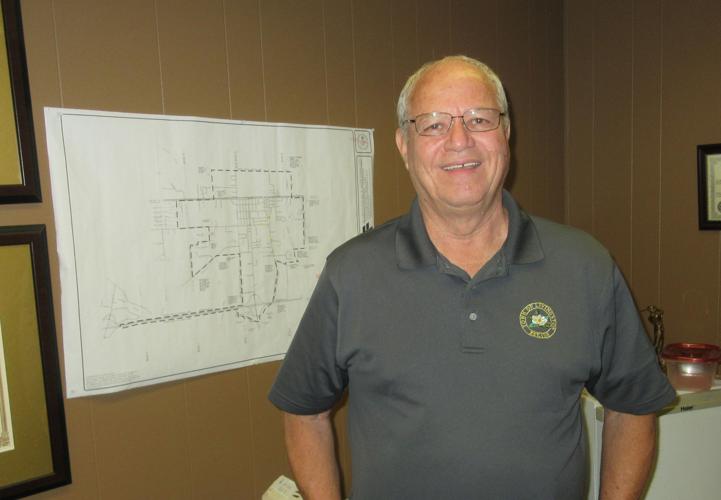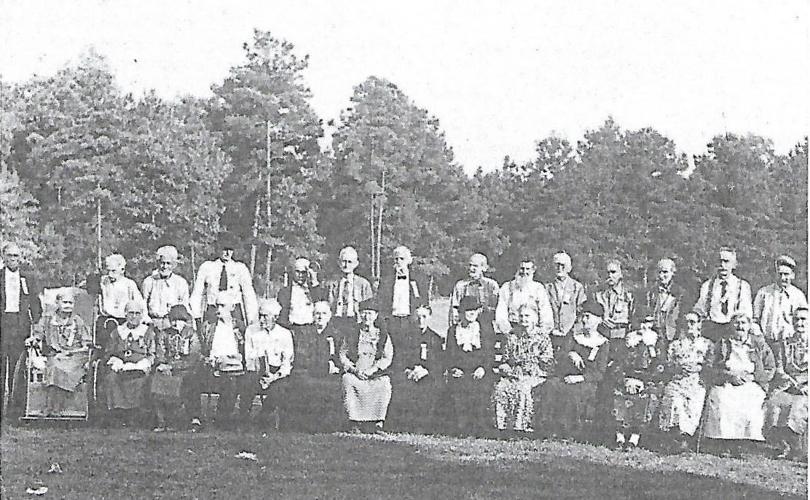LIVINGSTON — Residents and visitors from throughout the area will gather on Saturday at Town Park to sing “Happy Birthday” to mark the town's 100th anniversary with a family day.
Mayor David McCreary said the all-day celebration will have “a little something for everyone.” The celebration will begin in the morning with gospel singing and a variety of activities with many devoted to youngsters in the community of about 2,000.
“We will have face painting, games, vendors selling various products and a dunking booth. I am sure that I will get wet before it is over,” McCreary said.
A jambalaya cook-off is planned, and hot dogs and hamburgers will be available for the visitors. The day will end with music provided by area bands.
The day’s festivities are being planned by volunteers and town employees, McCreary said.
Among the highlights will be the 9 a.m. dedication of a memorial to the late Darryl Jones, who was mayor of Livingston for 20 years.
Any proceeds from the celebration will be dedicated to improvements at the park. McCreary said he wants to extend the boundaries of the park to include soccer fields and a splash pad. The mayor said Livingston’s park is popular because it is well-fenced and is a safe place for families with children to gather.
“Our Fourth of July celebration gets bigger and bigger each year because people like to come here because it is family-oriented in a safe environment,” he said.
The town traces its origins to 1918 when the community was established by the Lyon’s Lumber Co. Livingston was a logging community planted on 63 acres just west of Doyle to support the logging industry and timber mills in the area.
The Garyville-Northern Railroad connected Livingston with Garyville on the Mississippi River. Timber and lumber were sent to markets all over the world from the port of Garyville.
Historian Clark Forrest said an early account of the town described the community as having three-room and shotgun houses for the timber workers. The homes were uniform in design and only two residences were different from the others.
The town included a two-story company store that sold groceries and mercantile items and housed the post office. Additionally, there was a bakery, a “moving picture house” and the Livingston Hotel.
“No one knows the population of Livingston in its formative years because it was a company town and not subject to census counts,” Forrest said.
McCreary noted early Livingston featured a house on every lot, a boardwalk in front of every home and water wells drilled on every corner so every home would have access to running water.
Livingston Parish and the town are both named for Edward Livingston, of the famous Livingston family of New York. Forrest said Edward Livingston was a collector of taxes for New York City, and some of his clerks embezzled money, putting Livingston in a bad light. He moved south and settled in Louisiana.
Livingston eventually served in the state Legislature and became a U.S. senator representing Louisiana. He was appointed U.S. secretary of state while he was serving in the Senate. Livingston, a lawyer by training, also wrote the criminal code for Louisiana.
The communities of Livingston and Doyle existed side by side until the two were combined in 1955 to create the town of Livingston.
Forrest said a post office was established in the area that would become Doyle around 1900, and the first postmaster was Matthew Mizell, who was from Washington Parish.
“According to an interview I had with one of Mizell’s descendants, Mizell decided to name the post office Doyle because he wanted a word he could write without lifting his pen to dot an ‘i’ or cross a ‘t.’ Whatever the origin, that community became known as Doyle and the name exists today,” Forrest said, adding that the name Doyle came to be associated with the community for the next several decades.
Forrest said the U.S. Postal Service sought to establish post offices about 2½ miles apart so residents could be in walking distance of a post office and hence the establishment of the Doyle post office.
McCreary added that the Doyle school had burned down, and when a new school was to be built, it was proposed for Livingston. The residents of Doyle wanted to preserve the name of their school, so a compromise was reached: The school would be built in Livingston but would retain the name of Doyle.
Hence, almost every community in Livingston Parish has a high school that bears the name of the city or town in which it is located, with the exception of Livingston, which still features Doyle High and other schools with the same name.
Livingston has been the seat of Livingston Parish since 1941. Forrest said at one time, Port Vincent had been the parish seat and a courthouse there burned down in 1875. A temporary courthouse in Port Vincent continued to be used until a new parish government seat could be located.
In 1881, the courthouse was moved to a place called Centerville. But because that name was found in other Louisiana parishes, it could not be used. Eventually, planners settled on the town of Livingston as the parish seat because of its central location.
“Other cities, especially Denham Springs, wanted the courthouse, but the majority of the people demanded a central location, and Livingston was the logical choice,” Forrest said.
Forrest said the Lyon’s Lumber Co. was headquartered in Chicago and was only interested in cutting timber until it was all gone. The company had planned to move to Oregon once all the timber was cut in Louisiana, but the move was never made.
“The largest cypress tree ever cut was brought down by the Lyon’s Lumber Co., and at one time, a board from that tree was on display in the State Capitol. It is recorded that that tree was approximately 1,300 years old. It just goes to show you that the lumber companies had no respect for the magnificent trees that were in the Livingston Parish area.”
Livingston was on a railroad that ultimately became the Illinois Central, and that helped with the community’s growth. At the same time, the town was the site of a modern tragedy that placed the small town in the national spotlight.
McCreary said, “On Sept. 28, 1982, shortly after 5 a.m., 36 cars were derailed in the center of Livingston, which caused an explosion heard as far away as Denham Springs and Springfield. Of the 36 derailed cars, 27 contained various regulated hazardous or toxic chemical commodities. The town was in danger. Police cars with loud speakers went through the town notifying residents to evacuate immediately."
McCreary said the once small town, dominated by several sawmills and lumber companies, has now grown into a robust community that is continuing to grow. He said new retail outlets are opening in the town, and residents continue to choose Livingston as a good place to live and rear a family.
McCreary, who has been mayor for two years after serving on the town’s Board of Aldermen for eight years, said he sees good things for his town as it turns 100.
“We have had an interesting history, but through it all, we have been marked by good people who enjoy their town and hope to make it better. We will enjoy celebrating our 100th birthday," he said.




